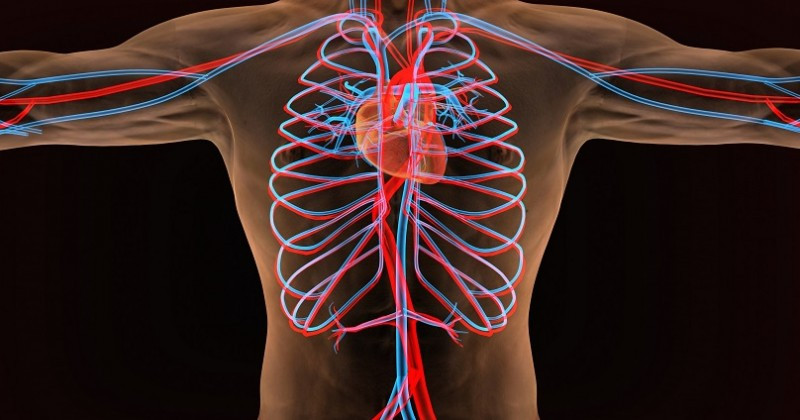Why Your Circulation Matters
Blood circulation is an important, but basic, bodily function that you probably don't even think about if you're in good health.
Proper circulation is important to humans as it is the means by which oxygen, nutrients, and many other substances reach the vital organs.
If your blood circulation is poor, then this can affect the brain, heart, lungs, and other vital organs. These and other organs might experience
dysfunction if they do not get enough blood. For example, poor circulation to the brain might affect cognition and memory. Poor circulation to one or more organs in the digestive system can lead to malabsorption and other issues. If the heart itself isn't getting enough blood, then angina - a feeling of tightening or increased pressure in the breast - may occur.
Causes of Circulatory Issues
A variety of factors can affect circulatory health. Some of them are within your control, and others are genetic. Certain
conditions can cause circulatory health to suffer. These include both Type I and Type II diabetes, peripheral artery disease (which is most common in people over 50), and Raynaud's Disease, a condition which causes arteries in the hands and feet to narrow.
Lifestyle Factors and Circulation
Some factors that contribute to an unhealthy lifestyle can inevitably affect your circulatory health. These are many of the same factors which lead to other health issues, particularly cardiovascular ones. Here are some of the lifestyle factors you should keep in mind for bolstering your circulation over the course of your life, thus avoiding complications.
1. Smoking on a regular basis has a direct effect on the cardiovascular system. This is common knowledge. It specifically increases the chances of developing peripheral artery disease, along with other potentially severe and
fatal conditions. If you smoke and then quit, this is liable to increase your circulatory health within a matter of weeks. 2. Losing excess weight can work wonders for some people who are both obese and experiencing poor circulatory health.
Excess weight can put physical pressure on the heart and the lungs, which can affect circulation. It can also put pressure on blood vessels throughout the body. All this is in addition to the other effects obesity has on a person's health. 3. Staying physically active day to day, and over the course of your life, will contribute to
good circulatory health. If you work a job where you are sitting, stand up and walk around for a few minutes every few hours. If you don't exercise, consider starting. Physical activity gets the blood pumping, and this improves the strength of blood vessels. Far too many people experience severe health issues merely because of a sedentary lifestyle.
Supplements for Good Circulation
Cayenne pepper is a spice that has a strong, spicy flavor. Cayenne contains a chemical known as
capsaicin. Capsaicin stimulates the production of nitric oxide, a chemical known as a vasodilator, which is a compound that expands the blood vessels. Research has shown that not only does cayenne improve circulation, but helps strengthen blood vessels. If you are not crazy about the taste, then try taking a cayenne supplement.
Vitamin C is an essential vitamin that, among many other things, helps keep the membranes of your
blood vessels intact, and strong. Vitamin C is commonly available in supplement form, and is present in many foods.
Garlic has a variety of health benefits, one of those being its ability to promote the
relaxation of blood vessels. As a result, blood flow to organ tissues is increased, and blood pressure might be reduced. This is due specifically to the sulfur compounds contained in garlic. Garlic consumption has been linked to increased flow-mediated vasodilation, an indicator of efficient and healthy blood flow.
Vitamin B3, also known as niacin, is helpful for blood flow in more ways than one. Getting enough vitamin B3 might help reduce inflammation in your blood vessels, which is important because inflammation is a leading cause of
vasoconstriction. It also helps reduce the level of negative cholesterol in the body, and therefore in the blood vessels. Vitamins B6 and B12 are also good for circulatory health.

